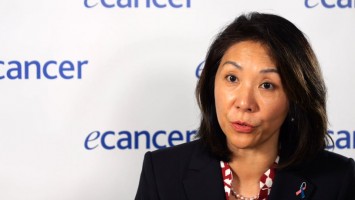My whole career was a wet lab scientist so I worked in cellular and molecular biology and nothing to do with any of this stuff at all. Then I became head of the Medical School in Oxford and discovered that there was this very strong programme in tropical medicine, at that point, which I knew nothing about. I was talking to them about these issues and what their problems were and amongst the issues they identified as being difficult was lack of good quality pathology. So I said, ‘Well, that’s interesting, I’m a pathologist. When I’ve done a little bit more I might actually go and try and help out.’ So then I started to look into it and suddenly realised that, in fact, pathology in many, many countries was either very inadequate in distribution and/or in standards. I’ve become involved in the last seven or eight years in trying to do something about that.
How do you compare your work in low and middle income countries to the NCI in Washington?
How to compare? Well it’s interesting, actually, the NCI, National Cancer Institute, the reason I’m involved with them is that some years ago was that their Head of the Centre for Global Health came to me and said, ‘Look, we are funding research in low and middle income countries in cancer,’ and they were discovering that, in fact, not infrequently it’s either not cancer or it’s a different type of cancer or it’s a different stage because the pathology is inadequate. And the cancer registries, which we base policy development on the epidemiology of the tumours in these countries, is inaccurate. So they were actually coming around to the same issue that they needed to get better quality, better distribution, better access to good quality pathology. That’s why they’re interested in it as well, it’s mainly a sense we’re wasting their money funding research which turned out not to be what they thought it was. It’s estimated that the total global cost of cancer globally per year is something in the order of two trillion US dollars in terms of economic impact and all the rest of it, the cost of doing what they’re doing. If you think quite a bit of that is probably wasted, in my case because of inadequate pathology. But if you could actually spend 1% of that, which would be ten billion to try and build some of the activities we’ve been talking about you could make an enormous impact with a relatively modest investment of what the global cost currently is. So it’s doable, we know what to do, we just need the resources – money, time, people – to do it.
What is your take home message?
The thing I’m most convinced about that needs to be done is somehow or other it’s advocacy basically. We have to somehow or other get the message out to the decision makers, whether it’s politicians or funders, that, in fact, there are these problems but they are soluble but they do require dedicated resources and time. Somehow or other we’ve got to try and get that message together in an effective way to deliver to the appropriate people. Probably the biggest advocates if we can do it effectively is actually getting patients on board and getting them to say, ‘Actually, this cancer cure is inadequate for the following reasons. Please Prime Minister, or Minister of Health, would you do something about this?’








